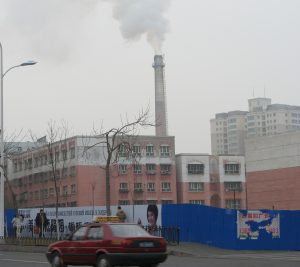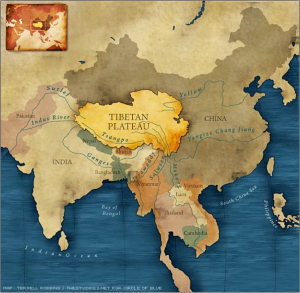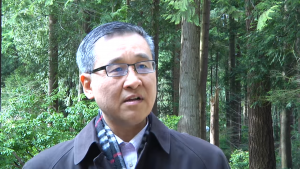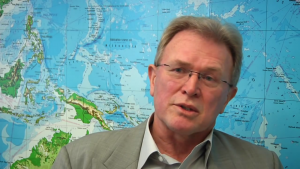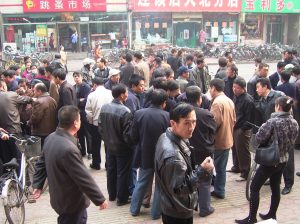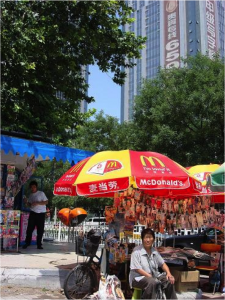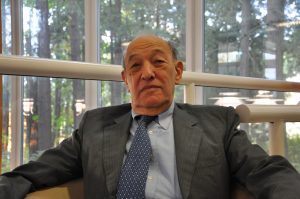Relocating China’s Pollutive Industries: a “Double Pollution” Problem
Memo #143 – Newspaper headlines in China have been speckled with the painful legacies of industrial land contamination. The term “brownfield” is used by post-industrial countries to describe land contaminated by previous industrial use. It is increasingly applied to cases in China. But the context is different, as China still experiences rapid growth. This separates China’s “brownfield” dynamic (constant land use change), from post-industrial countries’ static issues of derelict land.
Water, Scarcity, and Tibetan Plateau Frontiers
Memo #142 Theme Editors: Tashi Tsering and Jack Hayes Freshwater (in)security is quickly rising as a critical global challenge. Today, March 22, is World Water Day. The focus is freshwater and measures for conservation and management. Last fall, Asia Pacific Memo published four Memos as part of its Theme, “Water, Scarcity, and Tibetan Plateau Frontiers.” […]
China: Energy, Environment, and Growth – Options for Canada (Video Interview with Dr. Wenran Jiang)
Memo 140 – China’s environmental issues need to be understood in a global rather than a narrowly national context. While China as a nation is the largest emitter of carbon dioxide on a per capita basis Chinese citizens produce far fewer emissions than citizens in advanced industrial economies. Further a large proportion of these emissions result from export industries producing goods for export abroad.
Comparing Chinese and Indian Media Industries (Video Interview with Hugh Stephens) (Part 1/2)
Memo #136 – Hugh Stephens, Executive-in-Residence at the Asia Pacific Foundation of Canada, has over 35 years of government and business experience in the Asia region. In this interview, he compares the Chinese and Indian media industries.
Why do Chinese Migrants Have to Pay so Much to Work Overseas?
Memo #135 – Unskilled workers from China have to pay exorbitant costs to work abroad in Japan, Singapore, and South Korea, their top three choices. Fees, averaging 8,000 USD, are not charged by human smugglers but licensed employment intermediaries. In fact, transnational labour migration through legal channels costs significantly more than illegal migration. This is not unique to China. Across Asia, the percentage of legal migrants is increasing – more than 800,000 Chinese by the end of 2011 compared to less than 60,000 in 1990. Why is the cost increasing? Because Asian states rely on intermediaries.
为什么中国人出国打工费用这么高?
Memo #135 – 日本,新加坡和韩国是目前接纳中国非技术劳工最多的三个国家;中国人去这三个国家打工,要付8,000美元的中介费。这些钱不是给人贩子,而是给有正规执照的中介机构。事实上,通过合法途径出国打工的成本要明显高于非法迁移。这并不是中国特有的现象。在亚太地区,合法移民的比例在增加——2011年底有80多万中国人在境外就业,大大高于1990年的6万人——但是成本也大幅度增加了。其原因就在于,亚太国家依赖于中介机构管理跨国劳动力流动。
Beyond Censorship in China’s Media and Cyberspace
Memo #131 – On January 9, 2012, the People’s Daily led with a glowing feature celebrating Chongqing’s attempts to achieve “common prosperity.” 30 years of market-driven reform, “letting some people get rich first,” has created one of the most unequal societies in the world. Chongqing’s innovative strategies have deep implications for China’s future, and an intense debate is currently playing out in Chinese media, old and new.
Why China isn’t Buying Eurozone Bailout Bonds (Yet)
Memo #128 – China has still not committed to invest in the European Financial Stability Facility (EFSF), the stopgap fund created to tackle the European sovereign debt crisis. Officials have actually stated that China will not use its $3.2 trillion in foreign exchange reserves to rescue other countries. Why is this so?
为何中国仍未打算购买欧元区救助债券
Memo #128 – 中国仍未就投资于欧洲金融稳定基金(EFSF)做出任何承诺。创立这一基金是为了应急解决欧洲主权债务危机问题。官方发言人已表示,中国不会使用3.2万亿美元的外汇储备拯救其他国家,为什么要这样做呢?
Interview with Ezra Vogel on Deng Xiaoping’s Role in International Relations (Part 3/3)
Memo #123 – In this final instalment of our interview with Ezra Vogel, he turns first to the legacy of Deng Xiaoping. While Deng’s role in the suppression of popular protest at Tiananmen Square in 1989 will never be forgotten, the longer view will dwell on Deng as the man who changed China and steered the transformation that formed the China we see today. Professor Vogel then turns to Deng’s role in international relations, beginning with the predominant relationship with the US but also noting Canada’s special role in the 1970s and enduring relationship. Finally, Professor Vogel reflects on how he came to write this biography, and much of his public work, in a style that combines scholarship and accessibility.
